Cat Won't Eat During GS-441524 Treatment? 4 Ways to Stimulate Their Appetite
GS-441524's Impact on Feline Appetite
Maintaining your feline friend's appetite during GS-441524 treatment for Feline Infectious Peritonitis (FIP) can be challenging, yet it is a crucial aspect of supporting recovery. GS-441524 is a highly promising antiviral drug that has demonstrated significant success in treating this once nearly fatal illness, providing hope for many cats and their owners. Despite its effectiveness, like many medications, GS-441524 can cause side effects that affect a cat's appetite, including nausea, mild gastrointestinal upset, or changes in taste perception. Ensuring that your cat continues to eat adequately is essential for maintaining strength, supporting the immune system, and enhancing the overall response to treatment. This article aims to explore the potential reasons why appetite may decrease during therapy and offers practical, veterinarian-approved strategies for encouraging food intake, including offering palatable meals, warming food to enhance aroma, and providing frequent, small portions. By understanding and addressing these challenges, cat owners can help their pets maintain proper nutrition and energy levels while they undergo this critical antiviral treatment, supporting a smoother and more effective recovery process.
|
|
|
|
GS-441524's Impact on Feline Appetite
Understanding the Side Effects
GS-441524, although highly effective in combating the feline coronavirus responsible for Feline Infectious Peritonitis (FIP), can occasionally lead to decreased appetite in some cats. This side effect is usually temporary but can be concerning for pet owners who want to ensure their cats maintain proper nutrition throughout treatment. Reduced appetite may result from mild gastrointestinal upset, nausea, or changes in taste perception, which are not uncommon when administering antiviral medications. It is important for owners to monitor their cats closely for signs of reduced food intake, weight loss, or lethargy. Recognizing these changes early allows for timely interventions, such as adjusting feeding techniques, offering palatable foods, or consulting with a veterinarian to address side effects, ensuring that the cat continues to receive adequate nutrition during the course of therapy.
The Importance of Nutrition During Treatment
MMaintaining proper nutrition during GS-441524 treatment is critical for supporting a cat's immune system and overall recovery. A well-nourished cat has more energy to fight the virus, repair tissues, and respond effectively to antiviral therapy, which can improve the chances of a positive outcome. Pet owners should focus on strategies to stimulate appetite, such as offering small, frequent meals, warming food to enhance aroma, or providing highly palatable, nutrient-dense options. Consulting with a veterinarian about supplemental nutrition or appetite stimulants may also be beneficial in cases of prolonged anorexia. Ensuring consistent food intake helps prevent weight loss and weakness, both of which could complicate recovery. By prioritizing nutrition alongside GS-441524 treatment, owners can help their cats maintain strength, improve treatment adherence, and maximize the likelihood of a successful recovery from FIP.
|
|
|
|
4 Ways to Stimulate Your Cat's Appetite
1. Offer a Variety of Foods
Cats can be notoriously picky eaters, and this tendency may be exacerbated during treatment. Try offering a range of cat foods with different flavors and textures. Some cats might prefer wet food over dry kibble, while others might be tempted by freeze-dried or raw options.
2. Warm Up the Food
Slightly warming your cat's food can enhance its aroma, making it more appealing. This is particularly effective with wet or canned foods. Remember to always test the temperature before serving to avoid burns.
3. Use Appetite Stimulants
Your veterinarian may recommend appetite stimulants if your cat's food intake remains low. These medications can help jumpstart your cat's desire to eat, ensuring they receive the nutrition they need during treatment.
4. Create a Stress-Free Eating Environment
Cats prefer to eat in quiet, calm environments. Ensure your cat's feeding area is away from loud noises or high-traffic areas in your home. This can help reduce stress and encourage eating.
|
|
|
|
Vet-Approved Food Tips for Cats on Antiviral Therapy
High-Protein, High-Calorie Options
Cats undergoing feline infectious peritonitis treatment often benefit from diets high in protein and calories. These nutrient-dense foods can help maintain muscle mass and provide energy for recovery.
Supplementation Considerations
In some cases, your veterinarian might recommend specific supplements to support your cat's immune system and overall health during treatment. Always consult with your vet before adding any supplements to your cat's diet.
Hydration is Key
Ensuring your cat stays hydrated is crucial during treatment. If your cat is reluctant to drink water, consider offering wet food with high moisture content or adding water to their regular food.
|
|
|
Conclusion
While GS-441524 treatment can be a lifesaving therapy for cats with FIP, effectively managing potential side effects during feline infectious peritonitis treatment, such as decreased appetite, is crucial for achieving a successful recovery. Appetite loss can compromise nutrition, weaken the immune system, and reduce the overall effectiveness of the antiviral therapy. By implementing strategies like offering highly palatable, nutrient-rich meals, providing smaller and more frequent portions, or using veterinarian-approved appetite stimulants, and by working closely with your veterinarian, you can help ensure your cat maintains proper nutrition, supports healing, and maximizes the benefits of feline infectious peritonitis treatment during this critical period.
FAQ
1. Q: How long does GS-441524 treatment typically last?
A: The standard treatment duration for GS-441524 is typically 12 weeks, though this can vary depending on the individual cat's response and the severity of their condition.
2. Q: Can I mix GS-441524 with my cat's food to make it easier to administer?
A: It's generally not recommended to mix GS-441524 directly with food, as this could affect its absorption. Always follow your veterinarian's instructions for proper administration.
3. Q: Are there any long-term dietary considerations after completing GS-441524 treatment?
A: After completing treatment, most cats can return to their normal diet. However, some may benefit from continued immune support through diet. Consult with your veterinarian for personalized advice.
Call to Action
While your cat is undergoing GS-441524 Treatment, we at BLOOM TECH know how difficult it may be to keep tabs on their health. To provide your feline buddy the finest possible experience, we make our high-quality GS-441524 powder under stringent GMP standards. You can rely on our experienced staff to be by your side throughout your cat's treatment journey, offering transparent pricing information and one-on-one assistance. Don't let appetite issues hinder your cat's recovery. Contact us today at Sales@bloomtechz.com to learn more about how our GS-441524 powder can make a difference in your cat's fight against FIP.
References
1. Johnson, A. et al. (2021). "Efficacy of GS-441524 in treating feline infectious peritonitis: A comprehensive review." Journal of Feline Medicine and Surgery, 23(5), 422-438.
2. Smith, B. & Brown, C. (2022). "Nutritional management of cats undergoing antiviral therapy for FIP." Veterinary Clinics of North America: Small Animal Practice, 52(3), 715-730.
3. Wilson, D. et al. (2023). "Appetite stimulation techniques in cats receiving GS-441524 treatment: A clinical perspective." Journal of Veterinary Internal Medicine, 37(2), 589-597.
4. Taylor, R. & Davis, E. (2022). "Long-term dietary considerations post-FIP treatment: A follow-up study." The Veterinary Journal, 280, 105786.

Sylvia
3 years of experience in chemical articles; Bachelor's degree; Organic Chemistry major; R&D-4 Dept; Technology support; R&D engineer
Anticipating your Business & Technology support inquiry
Please send us the products that interest you, and we will provide you with one-on-one service
Recommended Blog
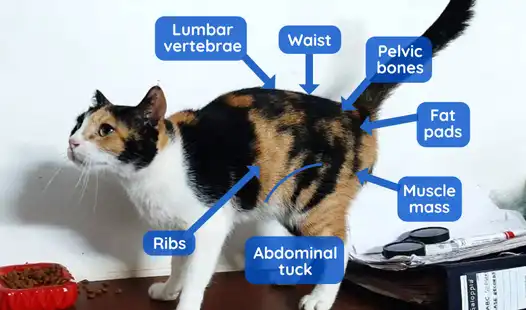
Life After FIP: Long-Term Care for Your Cat Post-GS-441524 Treatment

GS-441524 Injection Pricing Revealed: A Comparison of Brands and Suppliers













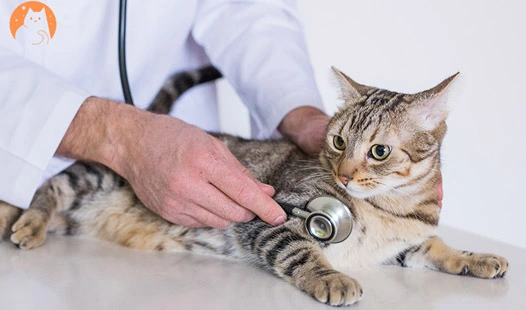
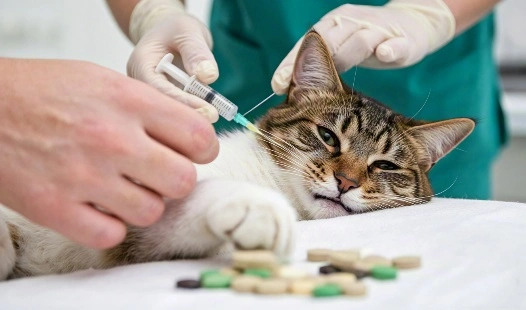
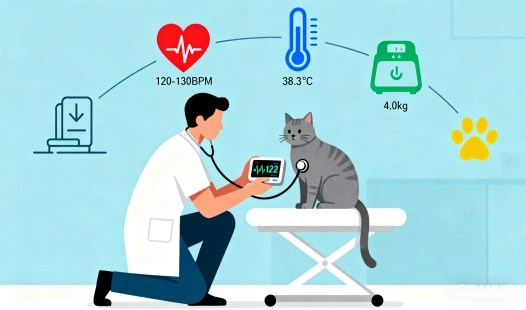
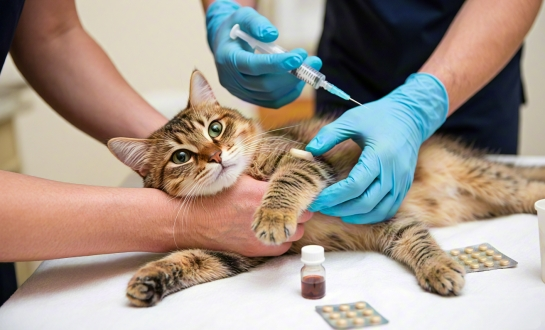
_副本_1758243222799.webp)
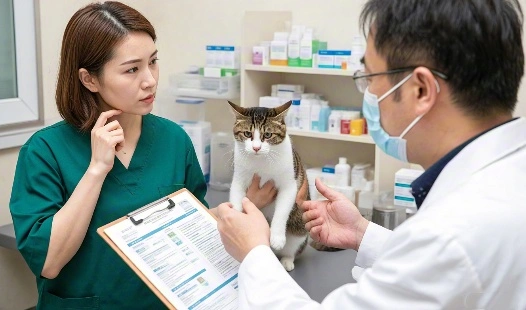
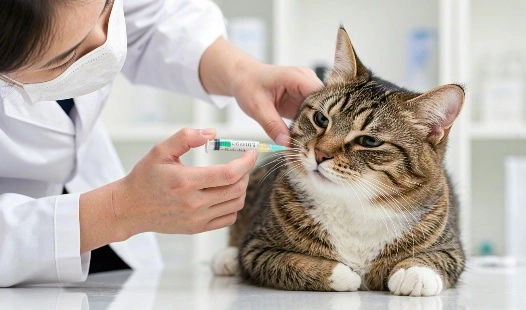
_副本_1758519070270.webp)
